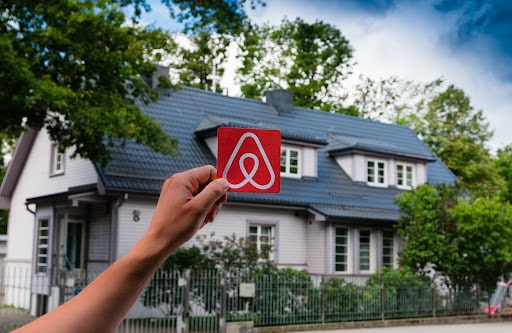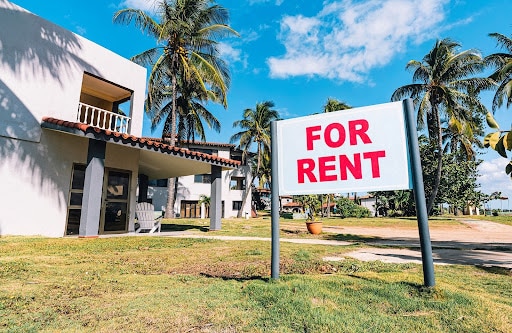

The topic of HOA vacation rental homes receives plenty of attention and is hotly debated, with some homeowners favoring them while others voting strongly against them. Whether or not an HOA allows rentals depends on a couple of things.
Simply put, an HOA vacation rental is a home, unit, or property in an HOA community rented out to tenants. Landlords are typically the homeowners.
More often than not, vacation rentals are short-term rentals. This means they are available to rent out short-term, usually less than 30 days. In contrast, a long-term rental is a rental that lasts more than 30 days.

It is normal for homeowners to want to rent out their homes or units to tenants. Rentals provide extra income for them. For second homes, renting out is much better than leaving them unoccupied.
Allowing rentals in an HOA community also opens the potential for increased appeal. This is especially true if the community sits in a desirable neighborhood or area. Plus, the HOA can contribute to the local economy and tourism industry.
However, rentals also have negative impacts on an HOA and its residents. Allowing rentals can result in increased noise levels. A high turnover rate can also disrupt the community’s peace, order, and harmony. After all, residents may feel less safe when strangers are constantly coming in and out of the neighborhood.
Additionally, there is a higher risk of wear and tear or property damage. Common areas, facilities, and amenities may see more damage due to tenant use. Tenants are, after all, not stakeholders. As such, what happens to the community’s assets doesn’t affect them in the long term.
Finally, there are certain financial implications when an HOA allows rentals. Insurance providers are more hesitant to offer coverage to communities with a high tenant count. Tenants tend to bring in more property damage and liability, so there is a higher risk-to-benefit ratio.
Whether or not an HOA can restrict rentals depends on state laws and the association’s governing documents. Some states have laws that prohibit HOAs from banning rentals altogether.
In Florida, Section 720.306 states that amendments made after July 1, 2021, that prohibit or regulate rentals only apply to owners who purchase their property after the amendment date or those who agree to adhere to it. However, the restriction doesn’t apply to amendments restricting rentals for 6 months or less.
An HOA’s governing documents also determine whether rentals are allowed. Typically, state laws permitting, an HOA can prohibit rentals or place restrictions on them if the governing documents authorize it.
Considering the adverse effects rentals can have on HOAs, it is understandable that associations would want to restrict them. Here are some key points to remember when enacting and enforcing restrictions on HOA vacation rental homes.
If state laws allow, an HOA can choose to prohibit rentals altogether. No homeowner can rent out their homes or units to tenants. Given the severity of the restriction, an HOA’s governing documents should clearly state this prohibition. If the governing documents don’t reflect the rule, an HOA should amend them.
Some HOAs don’t prohibit rentals altogether but place a cap on them instead. For instance, an HOA may wish to cap rentals to 10% of the entire community. In this case, if there are 100 homes in the HOA, only 10 can be rental properties.
Other associations have a waiting period. This means homeowners may not rent their homes within the first 1 or 2 years of purchasing their properties. However, it is best to tread cautiously with this restriction, as some states may not allow it.
Finally, an HOA can limit the damages and liability of short-term rentals by only permitting long-term rentals. The association should clearly define a long-term rental in its governing documents.
An HOA may also wish to charge a fee to homeowners who want to rent out their homes. This fee can cover potential damages and liability risks associated with tenancies. If an HOA wants to charge such a fee, it is essential to ensure that the governing documents authorize it.
An HOA should stress the importance of responsible homeowner-landlords. Rental property owners must do their due diligence, sign a rental agreement with their tenants, and ensure that their tenants follow the HOA’s rules and regulations.
If a homeowner violates the rental restrictions, an HOA should take proper disciplinary action. The violation process can vary from one association to another. However, it usually starts with a violation notice followed by a disciplinary hearing.
If the HOA finds the homeowner guilty of the violation, the corresponding penalty will be handed out. Penalties can range from monetary fines and a temporary suspension of privileges to legal action.

Vacation rentals can be quite lucrative for homeowners. However, homeowners in HOA communities should take the following steps before turning their homes into rentals.
First, it is essential to check state laws and the association’s governing documents. These two things can dictate whether or not a homeowner can even put their property up for rent. They can also shed light on what rental terms are permitted and any other requirements that may come along with it.
If permission is necessary, a homeowner should seek it from their HOA. Usually, this involves completing an application form and providing the HOA with pertinent information. Many associations require landlords to sign a rental agreement with their tenants to protect all parties, including the HOA.
The rental agreement should consist of the following details:
The agreement should also state that tenants must follow the association’s rules. If the tenant violates these rules, the landlord can collect the HOA fines from them. It can also be considered a breach of the lease agreement.
Homeowner-landlords should take out the right insurance policy for their venture, particularly landlord insurance. Furthermore, they should require tenants to carry renter’s insurance as well.
Homeowner-landlords should also ensure that tenants follow the HOA rules. This can be done during regular inspections to pinpoint possible damage, breaches, and liability risks.
When it comes to HOA vacation rental homes, it is not always black and white. Homeowners and HOA boards should refer to state laws and the association’s governing documents. Navigating rentals in HOAs, though, can be easier with the help of an HOA management company.
Vanguard Management Group offers HOA management services, including help with HOA rentals. Call us today at 813-930-8036 or contact us online to learn more!
